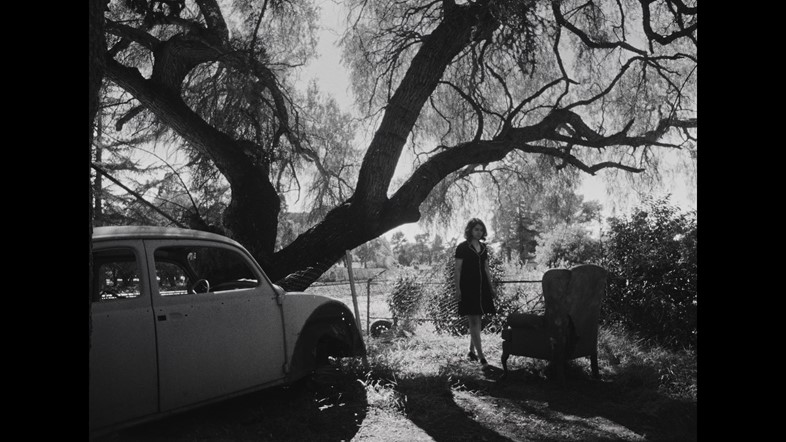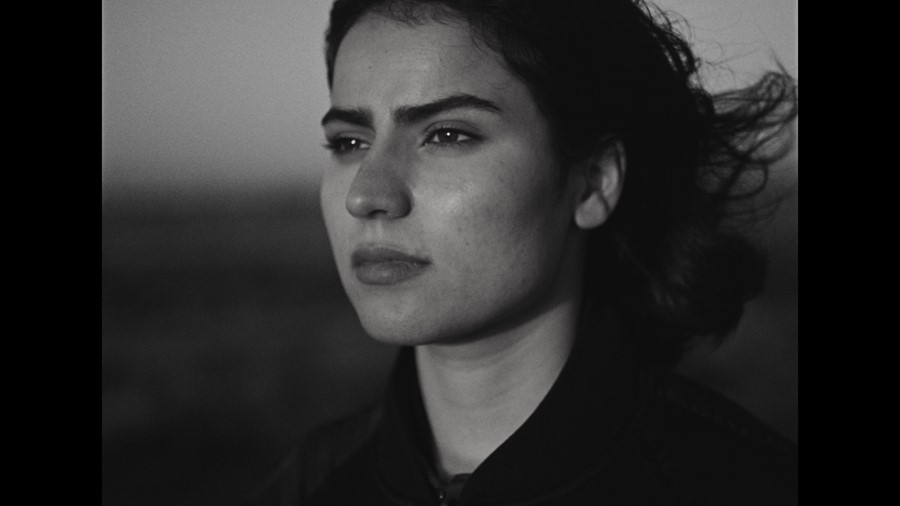Fremont director Babak Jalali and first-time actor Anaita Wali Zada talk about showing another side to Afghan women with their absurdist immigrant story
In art as in life, migration is a hot-button issue on screen right now, but few films give their leads the freedom to be funny, sexy or cool like Fremont does. In Babak Jalali’s new film – premiered at Sundance in January – first-time actor Anaita Wali Zada has all the laconic poise of the lead in a Jim Jarmusch movie, the odd flicker of hurt just barely visible under the soulful, deadpan exterior. In its own modest way, it’s a triumph of representation for refugee cinema – if you accept that representation means more than putting someone’s ‘plight’ up on screen.
Zada plays Donya, a former translator in the Afghan war now adjusting to life in suburban California, where she works in a fortune cookie factory. Donya is suffering from PTSD, though she doesn’t really know it yet, and starts seeing an eccentric therapist (Gregg Turkington) as a ruse to get sleeping pills for her insomnia. The experience “really was like therapy” for the 24-year-old actor, whose story shares parallels with Donya’s own: a former television news journalist and presenter in Afghanistan, Zada came to the US on an evacuation flight from Kabul, as the country fell to the Taliban in the summer of 2021. “[It brought up] everything that happened in Afghanistan, all those days in a camp, all the bad memories,” says Zada, who got the part after responding to an open casting call while she was living in Maryland. “But it really helped, especially the scenes with Gregg. I feel like I’m getting better every day.”
“As soon as we spoke I knew Anaita was ideal because of the way she presented herself,” says Jalali. “There was this mixture of melancholy and lightness to her that was endearing.” Conscious of the fact that many refugee dramas exist chiefly to prick people’s consciences, he sought out an actress who could bring levity to some undeniably heavy issues and got his wish with Zada, who proved a natural despite her limited English. In fact, says Jalali, there was only one scene that proved a stretch for the performer, where Donya shouts at a fellow expat neighbour who shuns her as a ‘traitor’ for working with the US army. The pair ran through several takes of the scene with Zada barely raising her voice, until finally he took her aside to see what the problem was. “But the thing is, I’ve never shouted at anyone in my life!” she protested.
“It helps to have an absurd humour, because it was an absurd situation [Anaita was in],” says Jalali of the film’s skewed approach. “Five months prior to coming to Oakland she was on an evacuation flight, then six months later she was in Sundance. I thought it would humanise Donya if we didn’t just focus on the grimness. Because of course she has baggage; she has seen some awful shit. We refer to all that, but we don’t get stuck on it because the reality is, there are also parts of the day for these people where you are just trying to live.”

For Donya, those struggles include her isolation and tedious job as well as a lack of sleep; hungry for connection, she scribbles her phone number along with a message – “desperate for a dream” – into a cookie while working at the factory one day. The ploy backfires, but Donya gets her shot at romance later in the film, with a sad but hunky mechanic who seems to share something of her loneliness. (If there’s any lingering doubt as to Zada’s movie-star potential, watch the way she holds the screen opposite The Bear’s burning hunk of love Jeremy Allen White, and makes it seem like he’s punching.)
The romance is real, but what’s important is that Donya is finally ready to step out of survival mode into something more closely resembling life. It’s an existential tale masquerading as a rom-com. “I’ve spoken to a lot of members of the Afghan community who’ve watched the film and they’re all really pleased,” says Zada, moved to speak at length with Jalali translating, “because unlike other representations in cinema which just focus on the killing and the misery and the helplessness of women, we show another side to Afghan women in that [Donya] takes her destiny into her own hands. She’s not seeking help from others. She’s trying to get things done by herself.”
Fremont is out in UK cinemas now.
